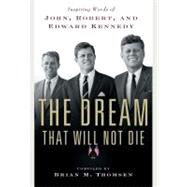
BRIAN M. THOMSEN had nearly earned a Ph.D. in English before being seduced by the siren call of publishing. He was the editor of The American Fantasy Tradition and Shadows of Blue & Gray: The Civil War Writings of Ambrose Bierce. Thomsen lived in Brooklyn, New York.
The New copy of this book will include any supplemental materials advertised. Please check the title of the book to determine if it should include any access cards, study guides, lab manuals, CDs, etc.
The Used, Rental and eBook copies of this book are not guaranteed to include any supplemental materials. Typically, only the book itself is included. This is true even if the title states it includes any access cards, study guides, lab manuals, CDs, etc.